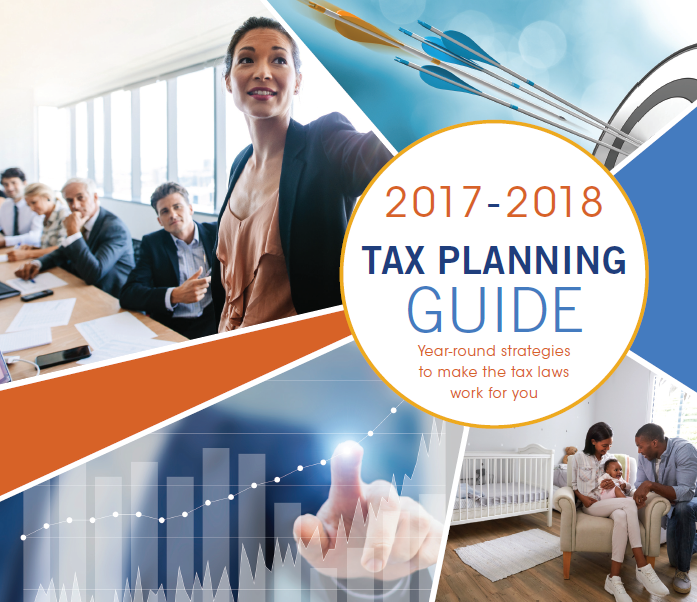No Rendering of Advice
To ensure compliance with IRS requirements, we inform you that any U.S. federal tax advice contained in this website (including any attachments or directed links) is not intended or written to be used, and cannot be used, for the purpose of (i) avoiding penalties under the Internal Revenue Code or (ii) promoting, marketing or recommending to another party any transaction or matter addressed herein.
Please be assured that this notice does not reflect any decrease in the quality of services or the amount of thought we put into our client interactions.
Any advice in this communication is limited to the conclusions specifically set forth herein and is based on the completeness and accuracy of the stated facts, assumptions and/or representations included. In rendering our advice, we may consider tax authorities that are subject to change, retroactively and/or prospectively, and any such changes could affect the validity of our advice. We will not update our advice for subsequent changes or modifications to the law and regulations, or to the judicial and administrative interpretations thereof.
For more information on Circular 230, please click here.
No Rendering of Advice
The information contained within this website is provided for informational purposes only and is not intended to substitute for obtaining accounting, tax, or financial advice from a professional accountant. Presentation of the information via the Internet is not intended to create, and receipt does not constitute, an accountant-client relationship. Internet subscribers, users and online readers are advised not to act upon this information without seeking the service of a professional accountant. Any U.S. federal tax advice contained in this website is not intended to be used for the purpose of avoiding penalties under U.S. federal tax law.
Accuracy of Information
While we use reasonable efforts to furnish accurate and up-to-date information, we do not warrant that any information contained in or made available through this website is accurate, complete, reliable, current or error-free. We assume no liability or responsibility for any errors or omissions in the content of this website or such other materials or communications. If you wish to contact the webmaster of this website, please call CPA Websites Solutions at 802-655-1519.
Disclaimer of Warranties and Limitations of Liability
This website is provided on an "as is" and "as available" basis. Use of this website is at your own risk. We and our suppliers disclaim all warranties. Neither we nor our suppliers shall be liable for any damages of any kind with the use of this website.
Links to Third Party Websites
For your convenience, this website may contain hyperlinks to websites and servers maintained by third parties. We do not control, evaluate, endorse or guarantee content found in those sites. We do not assume any responsibility or liability for the actions, products, services and content of these sites or the parties that operate them. Your use of such sites is entirely at your own risk.
We have moved! Please visit us at our new location at 134 Sipe Avenue, Hummelstown, PA 17036.


Browser our newsletters for additional information.
Publications

RS, State, & Revenue Office sites
- IRS Forms
- Internal Revenue Service
- PA Department of Revenue
- Social Security Administration
- Social Security Benefits Planner
- US Department of Labor
- PA Department of Labor and Industry
- PA DCED
Useful Forms
2025 Standard Mileage Rates
| Purpose | Rates per Mile |
| Business | 70 cents |
| Medical/Moving | 21 cents |
| Charitable | 14 cents |
2024 Standard Mileage Rates
| Purpose | Rates per Mile |
| Business | 67 cents |
| Medical/Moving | 21 cents |
| Charitable | 14 cents |
Check It Out!
Check out the article in PICPA CPA Now by Greg Kashella, published November 2021, Enhanced Financial Statement Disclosures for Small Businesses.
Check out the article in the Central Penn Business Journal, Women Who Lead, March 2019 article featuring our partner Jori Culp
Tax-Related Identity Theft
The IRS combats tax-related identity theft with aggressive strategies of prevention, detection and victim assistance. To find out more about tax-related identity theft call our office or visit https://www.irs.gov/identity-theft-fraud-scams/identity-protection for information and guidance.
Remember that the IRS will never contact you by electronic means. This includes emails, phone calls, text messages, or social media channels. If you are ever in doubt whether contact by someone claiming to be from the IRS is legitimate, call our office first for verification.

A new year brings many new tax-related figures for businesses. Here’s an overview of key figures for 2026. Be aware that exceptions or additional rules or limits may apply.
Depreciation-related tax breaks
- Bonus depreciation: 100%
- Section 179 expensing limit: $2.56 million
- Section 179 phaseout threshold: $4.09 million
Qualified retirement plan limits
- 401(k), 403(b) and 457 plan deferrals: $24,500
- 401(k), 403(b) and 457 plan catch-up contributions for those age 50 or older: $8,000
- 401(k), 403(b) and 457 plan additional catch-up contributions for those age 60, 61, 62 or 63: $3,250
- SIMPLE deferrals: $17,000
- SIMPLE catch-up contributions for those age 50 or older: $4,000
- SIMPLE additional catch-up contributions for those age 60, 61, 62 or 63: $1,250
- Contributions to defined contribution plans: $72,000
- Annual benefit limit for defined benefit plans: $290,000
- Compensation defining highly compensated employee: $160,000
- Compensation defining key employee (officer) in a top-heavy plan: $235,000
- Compensation triggering Simplified Employee Pension contribution requirement: $800
Other benefits limits
- Health Savings Account (HSA) contributions: $4,400 for individuals, $8,750 for family coverage
- Health Flexible Spending Account (FSA) contributions: $3,400
- Health FSA rollover: $680
- Child and dependent care FSA contributions: $7,500
- Employer contributions to Trump account: $2,500
- Monthly commuter highway vehicle and transit pass: $340
- Monthly qualified parking: $340
Miscellaneous business-related limits
- Income range over which the Section 199A qualified business income deduction limitations phase in: $201,750 – $276,750 (double those amounts for married couples filing jointly)
- Threshold for the excess business loss limitation: $256,000 (double that amount for joint filers) — note that this is a reduction from 2025
- Limitation on the use of the cash method of accounting: $32 million (also affects other tax items, such as the exemption from the 30% interest expense deduction limit)
Planning for 2026
We can help you factor these changes and others into your 2026 tax planning. Contact us to get started.
© 2025






